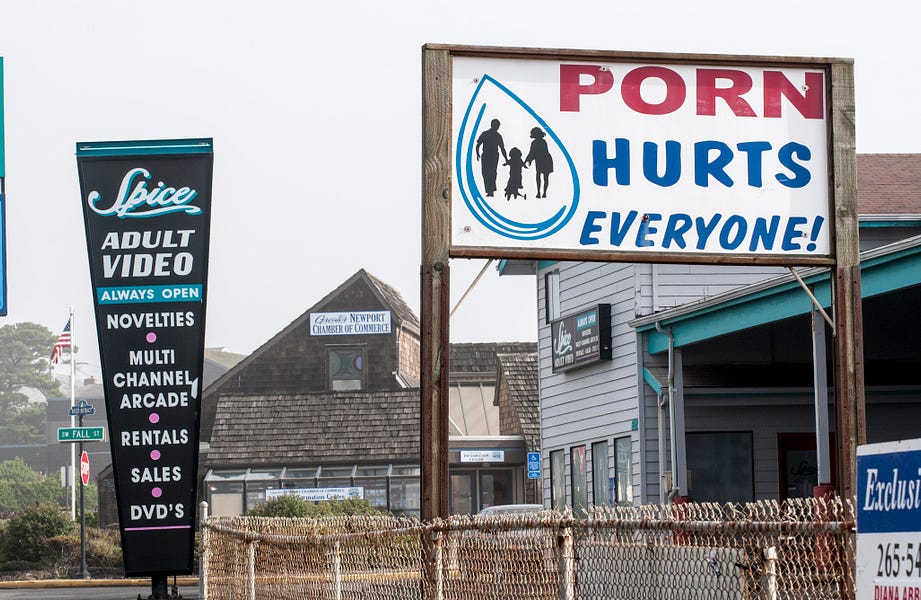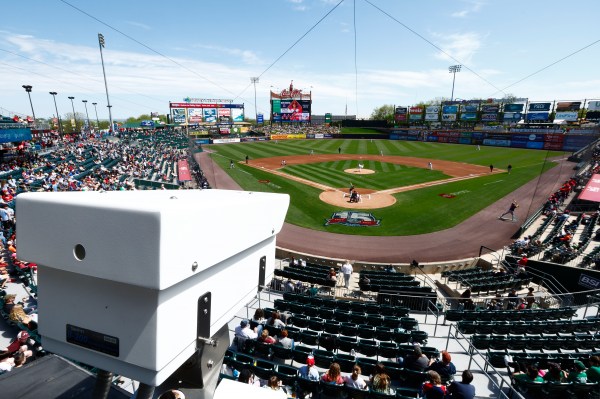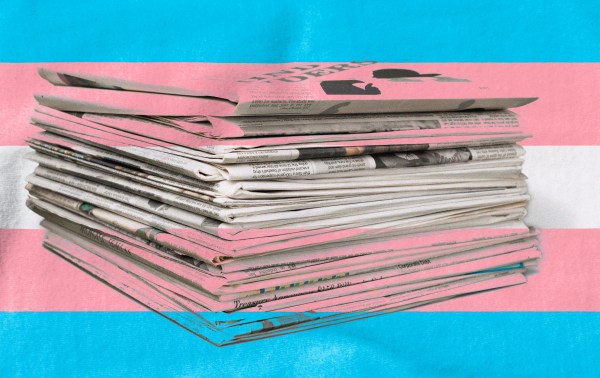The Great Conservative Porn War rages on. If you’re unfamiliar with this new front in the ongoing civil strife between nationalist/populist conservatives and libertarian conservatives, let me bring you up to speed on the latest developments. In December, four Republican congressmen—Jim Banks of Indiana, Mark Meadows of North Carolina, Vicky Hartzler of Missouri, and Brian Babin of Texas—wrote a letter to Attorney General William Barr requesting that the Department of Justice take action against “obscene pornography.”
My friend and former National Review colleague Alexandra DeSanctis obtained an exclusive copy, she wrote and tweeted about it, and the porn war was on. Rather than summarize the back-and-forth, I’ll refer you to an excellent explainer by another friend, Vox’s Jane Coaston.* Here’s a key excerpt:
Terry Schilling, executive director of the American Principles Project, a conservative think tank, argued in October in the Catholic magazine First Things that efforts to regulate pornography are part of a broader phenomenon. “In our time, a new conservatism is being born — one less interested in managing our nation’s decline than in using political power to promote virtue, public morality, and the common good,” he wrote. “Conservatives need to overcome their fear of governing the nation that elected them.”
In doing so, social conservatives are facing opposition from libertarians as well as fellow conservatives. They argue that efforts to ban or otherwise tighten regulations on pornography is the kind of overreach they have long stood against.
As Reason Magazine editor-in-chief Katherine Mangu-Ward told me, “What you’re seeing now is this rise of a much more authoritarian and state-oriented variant of conservatism and it just says, ‘You know what? Actually, never mind. Let’s take away the bad choices. Let’s make some bad choices illegal.’ This has long been a characteristic of the American left.”
Well, the fight didn’t end in December. The Claremont Institute has published a number of pieces, including a recent essay featuring the rather lurid claim that “libertarians are coming for your sexual dignity.” Reason magazine has fired back, and Twitter periodically erupts with angry, condescending, and often snarky exchanges between the warring tribes.
As a Christian conservative, a civil libertarian, and a person with a legal and political memory longer than the life-cycle of Twitter, I find myself consistently frustrated with the debate. It often ignores the lessons of history, it’s conducted as though relevant legal precedent doesn’t exist, and it seeks to sharpen areas of disagreement rather than find common ground. Let’s take these problems in turn.
First, it’s time to stop torching strawmen. It’s simply not true that the conservative movement has consistently shunned efforts to regulate pornography. Conservatives have not been afflicted with a “fear of governing.” The truth is that decades of legal battles have defined where governing is possible and where government goes too far.
Populists/nationalists often scorn Reaganism as the “dead consensus,” but do they remember Reagan’s famous Meese Commission and the resulting Meese Report? Or how about the Newt Gingrich Congress passing (and Bill Clinton signing) the Communications Decency Act in 1996? Are they aware of the many Supreme Court rulings in response to local and federal efforts to regulate porn?
Second, give up the pipe dream of banning porn. It’s been tried. It failed. Miserably. Few people now remember the story of American Booksellers Association v. Hudnut. In 1984, the city of Indianapolis (then led by Republican Mayor William Hudnut) enacted an ordinance that defined “pornography” as a practice that discriminates against women. It then defined pornography as “the graphic sexually explicit subordination of women, whether in pictures or in words” and that included one or more of the following elements:
-
Women are presented as sexual objects who enjoy pain or humiliation; or
-
Women are presented as sexual objects who experience sexual pleasure in being raped; or
-
Women are presented as sexual objects tied up or cut up or mutilated or bruised or physically hurt, or as dismembered or truncated or fragmented or severed into body parts; or
-
Women are presented as being penetrated by objects or animals; or
-
Women are presented in scenarios of degradation, injury, abasement, torture, shown as filthy or inferior, bleeding, bruised, or hurt in a context that makes these conditions sexual; or
-
Women are presented as sexual objects for domination, conquest, violation, exploitation, possession, or use, or through postures or positions of servility or submission or display.”
This definition of pornography went well beyond the Supreme Court’s recognized definition of “obscenity.” Under controlling case law, obscenity did not receive First Amendment protection, but its definition was extremely narrow. To be “obscene,” a publication “must, taken as a whole, appeal to the prurient interest, must contain patently offensive depictions or descriptions of specified sexual conduct, and on the whole have no serious literary, artistic, political, or scientific value.” Offensiveness was to be “assessed under the standards of the community.” In other words, Indianapolis pushed the envelope—much like current anti-porn activists want to push the envelope today.
Indianapolis lost. No, it didn’t just lose. It got crushed. First, the trial court rejected the ordinance. The 7th Circuit Court of Appeals affirmed the trial court, noting that Indianapolis’s arguments about the power of pornographic speech over culture could apply to a wide range of controversial speech:
Any rationale we could imagine in support of this ordinance could not be limited to sex discrimination. Free speech has been on balance an ally of those seeking change. Governments that want stasis start by restricting speech. Culture is a powerful force of continuity; Indianapolis paints pornography as part of the culture of power. Change in any complex system ultimately depends on the ability of outsiders to challenge accepted views and the reigning institutions. Without a strong guarantee of freedom of speech, there is no effective right to challenge what is.
Then the Supreme Court did something unusual—it summarily affirmed the court of appeals decision without argument. To put this in layman’s terms, this was a bit like a running back scoring a touchdown and then handing the football over to the quarterback for a gratuitous spike in the end zone. The Supreme Court put an exclamation point on the 7th Circuit’s ruling.
The consequences of decades of Supreme Court jurisprudence are clear—any attempt to ban pornography is a legal fool’s errand. It will not succeed.
But I also question something else—should it succeed? We have learned through bitter experience that American efforts to ban various adult activities, including alcohol, marijuana, and illicit sex, have resulted in their own human costs. Bans on alcohol and illicit sex (like adultery and sodomy) collapsed and failed. Bans on marijuana contributed to mass incarceration and have wreaked havoc on civil liberties.
Even those who aren’t libertarian should think long and hard before granting the government the power to imprison adults for voluntarily engaging in conduct that the government deems bad for them, or destructive of family values. I can believe something is wrong—even terribly wrong—without also believing that the government should use its power to try to ban the practice. Government regulation is ultimately enforced at the point of a gun, and more regulation doesn’t always equate with better outcomes. Sometimes, it harms more people than it helps.
But that does not mean there is nothing we legally can or should do. In fact, the Supreme Court has shown us the way. As technology develops we can and should “zone” online porn—away from children, making it (at the very least) more difficult for their young eyes to see things they most definitely should not see.
The genesis of the zoning approach comes from the physical world, where the Supreme Court has allowed municipalities to require porn establishments (like adult book stores or strip clubs) to move to specific, designated areas in the community. This development has liberated downtowns from porn, for example, and allowed places like Times Square or even downtown Nashville to thrive free from the nasty secondary effects of adult establishments.
In 1997, the Supreme Court struck down portions of the Communications Decency Act (CDA) that were designed to protect minors from “indecent” or “patently offensive” online communications, punting the protection of children back to parents, to tech companies to design better blocking software, and to the government to design better legislation.
But what would that better legislation look like? In the very decision that struck down the CDA, two Supreme Court justices gave us a hint. It would look a lot like the zoning we see in the physical world. Justice Sandra Day O’Connor and Chief Justice William Rehnquist wrote that cyberzoning legislation could pass muster if “(i) it does not unduly restrict adult access to the material; and (ii) minors have no First Amendment right to read or view the banned material.”
The technology (and legislation) to accomplish cyberzoning was inadequate in 1997. Is technology inadequate today? That’s a question worth answering. And if the answer is yes, expect to find a wide range of public support—from conservatives and progressives—for cyberzoning measures that could help clean up the internet in much the same way that city councils helped reshape urban environments to not assault a child’s eyes every single trip to town.
Ban porn? No, you cannot. Nor should you try to create an entire new class of criminals out of consenting adults. Zone porn? Yes, you can. Technology permitting, it’s a moral imperative to help keep shocking images out of reach of America’s children.
Photograph of adult video store and sign warning about pornography by Education Images/Universal Images Group via Getty Images.
*Correction, February 28, 2020: The piece originally misspelled the last name of Jane Coaston.







Please note that we at The Dispatch hold ourselves, our work, and our commenters to a higher standard than other places on the internet. We welcome comments that foster genuine debate or discussion—including comments critical of us or our work—but responses that include ad hominem attacks on fellow Dispatch members or are intended to stoke fear and anger may be moderated.
With your membership, you only have the ability to comment on The Morning Dispatch articles. Consider upgrading to join the conversation everywhere.